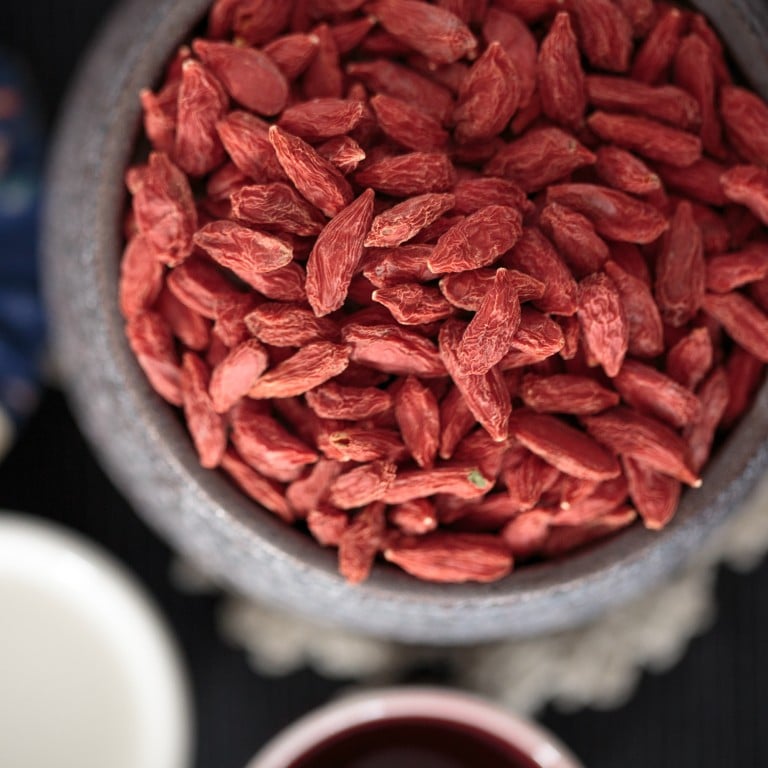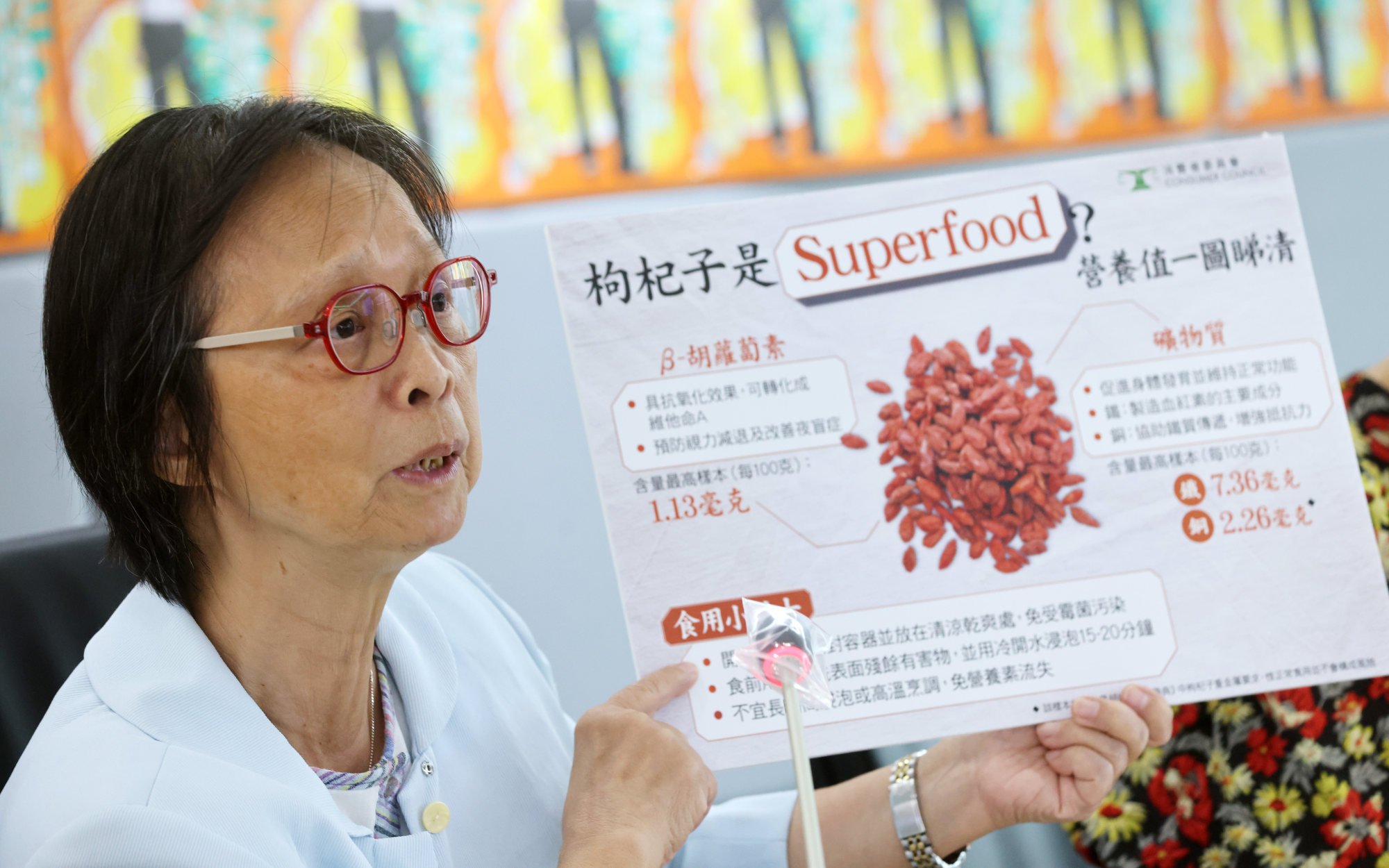
Hong Kong consumer watchdog warns of heavy metals and pesticides in dried goji berries, 2 samples exceed European limit for lead
- Consumer Council urges industry to reduce pesticide use and pest control methods to cut health and environmental risks
- Goji berries are known as superfood and used in traditional Chinese medicine as well as in home-cooked dishes
All 27 samples of dried goji berries tested by Hong Kong’s consumer watchdog were found to contain various types of heavy metals, with lead concentrations close to the local limit detected in two batches.
Revealing the results on Monday, the Consumer Council also said pesticides that could pose health risks were found in 70 per cent of the samples, although at levels within local and European standards.
Goji berries are typically considered a superfood and commonly used in traditional Chinese medicine and in home-cooked dishes, such as steamed chicken and stewed soups.
Rise in superbug contamination in popular dishes, Hong Kong study finds
“The council urges the industry to reduce the use of pesticides and other chemical pest control methods to cut risks to humans and the environment,” said Nora Tam Fung-yee, chairwoman of the council’s research and testing committee.
Tam also noted all goji berry samples tested contained various heavy metals, but 21 of them had lead levels ranging from 0.018mg to 0.29mg per kilogram. Some samples had traces of cadmium, arsenic and chromium – contaminants which can damage lungs and the respiratory system when consumed heavily.
Two samples – Premier Food’s Instant Ningxia Wolfberry and Yu Pin King’s Wolfberry Fruit – were also found with 0.284mg/kg and 0.29mg/kg of lead respectively, close to the upper limit allowed by the Hong Kong Food Adulteration (Metallic Contamination) Regulations.

The council referred the results to the Centre for Food Safety for follow-up. It tested the two samples and found the one from Premier Food contained 0.01mg/kg of lead, which is within the amount allowed by the local regulation, while Yu Pin King’s was free of the contaminant.
A distributor of Yu Pin King said the product met all legal requirements.
The Post has contacted Premier Food for comment.
The centre said metals existed in the natural environment. All of the results met Hong Kong’s legal requirements even though the council had found some samples contained metal contaminants, the centre said.
Contaminants found in nearly half of dried meat samples tested: Hong Kong watchdog
Fourteen types of pesticides were also found in 19 samples, with the council noting many farmers sprayed their crops with chemicals to guard against infestation.
One sample had seven types of pesticides, while four contained five or more different ones.
Two samples had 0.062mg/kg of chlorfenapyr and 0.071mg/kg of chlorothalonil respectively, which exceeded maximum residue limits set by the European Food Safety Authority, but were lower than the requirements under Hong Kong’s Pesticide Residues in Food Regulation.
Tam said a 60kg (132lbs) adult would have to consume more than 29kg or 17kg of the two foods in question per day respectively for them to pose a health risk.
Pesticide levels in the other 17 samples were lower than Hong Kong and European limits.
Carcinogens found in 70 per cent of gel nail polishes: Hong Kong watchdog
Tam advised the public to soak the goji berries in cold drinking water for 15 to 20 minutes to remove harmful residue from the surface.
“[But] avoid soaking for too long, while prolonged cooking at high temperature is also inadvisable, as this may result in the loss of soluble nutrients such as vitamin C and minerals,” she said.
The centre said the consumption of normal levels of the foods found with traces of pesticide would not pose health risks.
It recommended consumers store goji berries in airtight containers in dry and cool areas.

